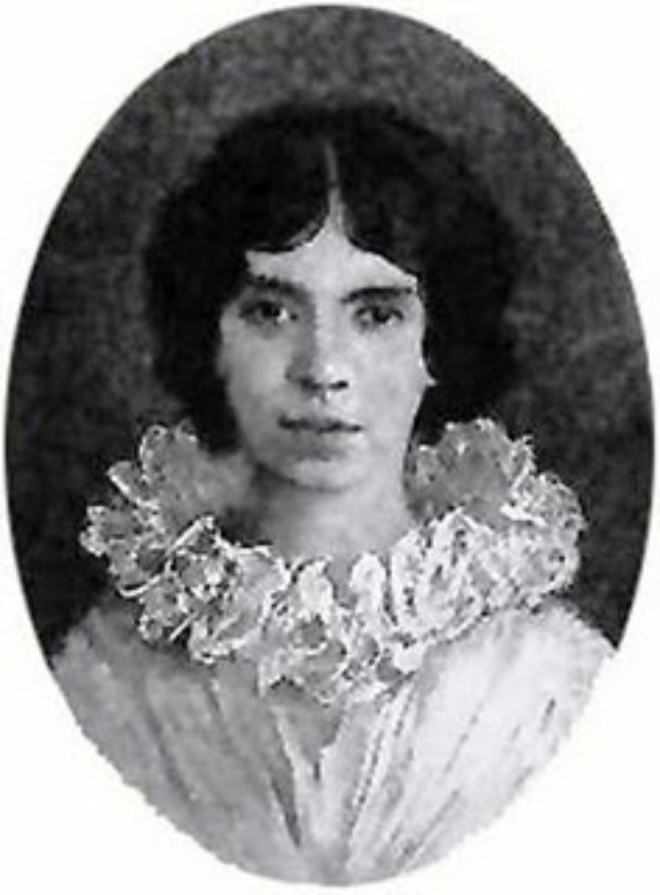Last Sunday marked the 527th anniversary of the day Christopher Columbus first laid eyes, all unknowingly, on “The New World.” That discovery radically changed world history. On a much smaller scale, a voyage of discovery begins every time a reader picks up a book, and each little voyage has the potential to change a life–as long as we don’t sink the boat in harbor. The following essay was adapted from “Empty Frigates,” WORLD, June 28, 2014.

Has this ever happened to you? You’re in the airport terminal waiting to board a flight, or perhaps you’ve just taken a seat on a city bus. Across from you sits a woman reading a book. As per habit, you tilt your head to scan the title, and your heart skips a beat. It’s one of your favorites! Customary reserve takes a back seat as you gasp, “I love that book!” she looks up, eyes alight. “So do I! It’s even better the second time!”
The next minutes might strike bemused observers as a long-lost-relative reunion or charismatic revival service: sentences stampeding, hands fluttering, swoony sighs. It’s the meeting of book lovers. Rare in person, but they meet continually online, over exclamation-studded reader reviews and blog-post reminiscences of lonely childhoods transformed by Jane Eyre or Robin Hood. They are living portraits of the Emily Dickinson poem: “There is no frigate like a book/ To take us lands away; / Nor any coursers like a page / Of prancing poetry . . .”

Anyone who has ever been shaken by a story, transported by a poem, or inspired by a well-written history fits my definition of “book lover.” C. S. Lewis (who as a boy experienced something like the scene I described in the first paragraph), understood this. Throughout his life he was vulnerable to stirring sagas and well-turned stanzas, a phenomenon he explored in An Experiment in Criticism. Not everyone is a book lover. In fact, Lewis suspected true book lovers were rare, but even a barely-literate day laborer might find something to feed his soul in King Solomon’s Mines or “The Raven.”
It’s very odd, when you think of it. Human beings come equipped with the capacity to enter a story and get to know fictional characters as though they were actual. Though it has no obvious practical value, the capacity is so deeply human it forms the bedrock of those academic disciplines called “The Humanities,” as well as that peculiar creature, “The English Major.” After millennia of thrilling crowds and stirring hearts, literature became an academic subject. Some critics believe that’s the worst thing that ever happened to it.
“Literature” as a subject has become the study of literary craft. Craft is involved in every form of art, and learning about perspective and composition can help us understand a painting. But it can also distract us from standing and looking. “The first demand any work of any makes upon us is surrender,” Lewis wrote. “Look. Listen. Receive.”
It may make sense to teach literature from a critical perspective in college, after students have read and enjoyed dozens of books. But the younger the child, the less she’ll gain from identifying story elements and compare-and-contrast. In fact, too much of this could actually harm a child’s appreciation for literature in general—like a poking at a live specimen until it’s dead.
The Common Core standards, which sounded so promising six years ago, appeared to make a bad method much worse. At least on paper. (See this download of a study unit from Little Women.) Instead of reading and enjoying books, students are exposed to “texts,” which they are then taught to dissect. Fiction and poetry go into the same hopper with informative essays and tracts. The fourth- or fifth-grader can’t just read. He is expected to engage in critical exercises that can bar his way to the story and its potential to “take us lands away.” If books are frigates, children should be allowed to step aboard and experience the journey, not make detailed diagrams of the rigging.
Beware of curriculum writers who don’t seem to understand the main problem with current educational theory: the child is seen not as a soul but as a brain. Brains don’t need experience and inspiration; they only need facts and analysis. The more reading is taught as a “subject,” instead of a voyage of discovery, the less children will want to read. Let the casual cluelessness of this sentence, taken from a website of reading aids, sink in: “Introduce young readers to the magic of Frances Hodgson Burnett’s The Secret Garden with this fiction comprehension worksheet”!
If your child comes home with worksheets attached to her latest library find, ditch them if you can. If you’re a teacher or school librarian, you might want to keep the literary evaluation to a minimum and talk more about the exciting parts or the sad parts or the feeling of a happy ending. If you’re a home educator, resist the temptation to turn to the workbook immediately after the book—some stories have to sit for a while before you take them apart. And others should never be taken apart. Let the kids read, free-ranging across the library stacks as much as possible (using your best judgment). Continue to read to them—lots of books, and all kinds of books. They don’t have to finish every one they start, either. Literary tastes are as individual as fingerprints and they take time to develop.
The cost is low, the value high. Take it from Emily Dickinson: “How frugal is the chariot / That bears the human soul.”
Betsy enjoys some recent books about books in her roundup post, “The Reading Life.” And, even if you ditch the worksheets, you can still get the kids together to just talk about books, as she tries to do in “Love Your Neighbor Book Club events: Save Me a Seat, The Vanderbeekers of 141st Street, and Tangerine.
Support our writers and help keep Redeemed Reader ad-free by joining the Redeemed Reader Fellowship.
Stay Up to Date!
Get the information you need to make wise choices about books for your children and teens.
Our weekly newsletter includes our latest reviews, related links from around the web, a featured book list, book trivia, and more. We never sell your information. You may unsubscribe at any time.
We'd love to hear from you!
Our comments are now limited to our members (both Silver and Golden Key). Members, you just need to log in with your normal log-in credentials!
Not a member yet? You can join the Silver Key ($2.99/month) for a free 2-week trial. Cancel at any time. Find out more about membership here.
4 Comments
Leave a Comment
You must be logged in to post a comment.


One of my favorite poems:
There is no Frigate like a Book
To take us Lands away
Nor any Coursers like a Page
Of prancing Poetry –
This Traverse may the poorest take
Without oppress of Toll –
How frugal is the Chariot
That bears the Human Soul –
Thank you for this superb essay and for all your thoughtful and helpful reviews. You are providing a needed and important service.
Gratefully,
Katie
Thank YOU, Katie! So glad to have you as a reader.
One of my favorite NF books a few years ago was The Book Whisperer by Donalyn Miller. I’ve recommended it to several of my teacher friends. Not everyone can throw away the expected curriculum, but we can all implement some principles to help kids want to read more and see its value. Thanks for adding your voice and ideas to this topic!
We’re fans of that book, too, Debbie! We reviewed The Book Whisperer a while back: https://redeemedreader.com/2011/10/are-you-a-book-whisperer/. Thanks for reminding us of it.